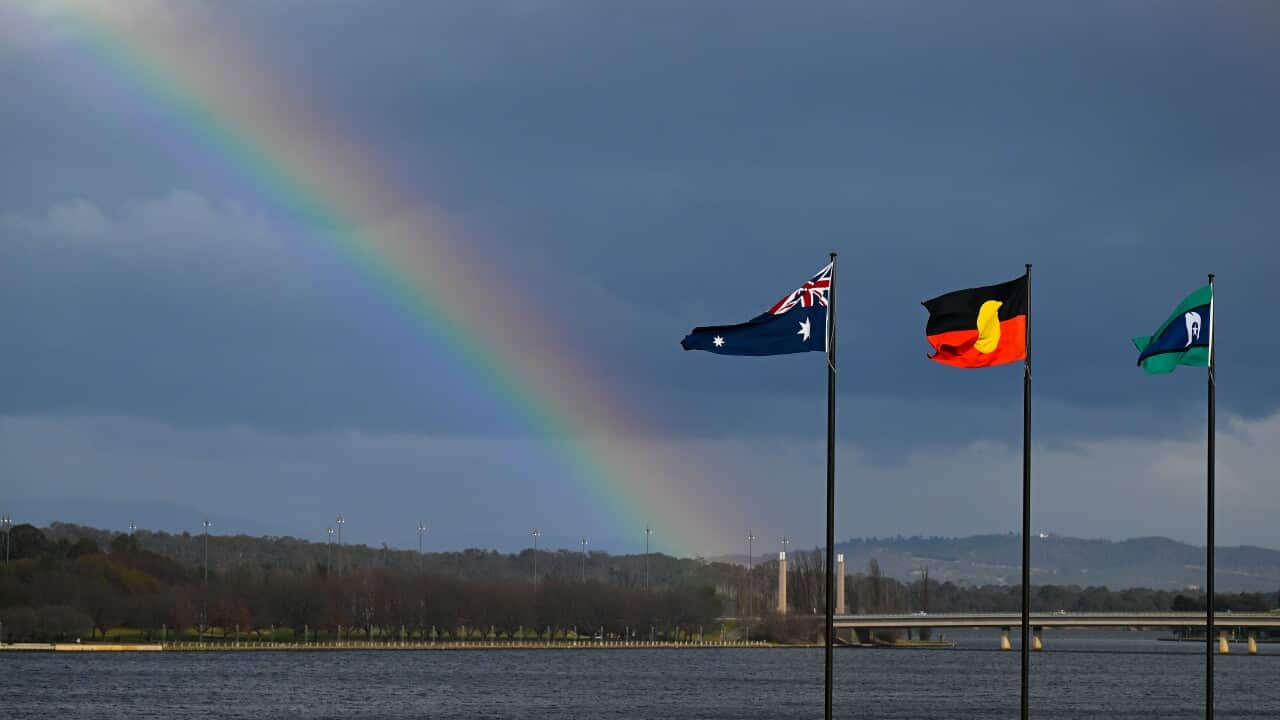TRANSCRIPT:
On the first anniversary of his mother’s passing King Charles has addressed the UK from what is now his Balmoral Estate.
Balmoral was Queen Elizabeth’s favourite residence and where she passed away.
"In marking the first anniversary of her late Majesty's death and my accession, we recall with great affection her long life, devoted service, and all she meant to so many of us."
The anniversary itself was understated.
King Charles and Queen Camilla, and the Prince and Princess of Wales, attended private prayer services, while Prince Harry made a solo visit to the Queen’s resting place inside Windsor Castle.
There was no public ceremonial event, but at Buckingham palace royalists left flowers and spoke fondly of the Queen's memory.
Woman 1: "It ((being at Buckingham Palace on the anniversary day)) makes extra special, doesn't it?"
Woman 2: "It does, it does, yeah."
Woman 1: "You know, it'd be nice to see everyone come together again for the anniversary."
Woman 2: "It's emotional."
Woman 1:"Yeah"
Woman 2: "It's emotional. It's hard to take and let just go on. And it's a year past, the year has just the flown, flown by."
The anniversary of the Queen's death has also been marked by quiet unrest about the future of the monarchy.
A new poll has found 60 per cent of Brits have a favourable view of Charles' reign, but there is a big generational gap - while 80 per cent of over 65s support it, just 37 per cent of 18-24 year olds do.
At Buckingham Palace, reviews for the King were more positive, although unenthusiastic.
Woman: "I think he’s doing ok, you know, he’ll get better as time goes. It’s his first time so we need to give him a chance."
Man: "I think he's done quite well, actually, he’s kept out of the controversy, which has been difficult for him I think."
Woman: "I don’t know really, I think probably ok? He supports a lot of environmental issues which I think people appreciate."
Republicans in the UK say that attitudes to the monarchy as a whole are changing.
Anti-monarchy group Republic, whose Chief Executive Graham Smith was infamously arrested before King Charles’ coronation, says it doubled its membership in the week following the Queen’s death.
Mr Smith says that the group is doubling down on its campaign, with more protests planned.
"People with a negative view of the monarchy, that’s now a third of the population, I think a lot is generational… a lot is a constant drip drip of bad news, whether it’s Andrew, the cash for honours against Charles, the whole Harry saga."
Royal experts say Charles managed to reduce his unpopularity in the initial period after the Queen's death by adopting a "steady" approach.
Royal biographer Robert Hardman says expectations that Charles would immediately modernise the monarchy were misguided.
"Some predicted there would be suddenly kind of wind turbines all over Buckingham Palace and there would be huge upheavals and there haven’t been because he understands that this is a very ancient institution. Of course, he’ll change it piecemeal, there will be changes to the way things are done, which is what every monarch has done through history."
Attitudes in Australia have also apparently shifted.
A YouGov Australia poll has found nearly a third of Australians want the country to transition to a republic as soon as possible.
The poll found 32 per cent of Australians want the country to become a republic as soon as possible, an increase of 12 percentage points on a similar poll last year, compared to 35 per cent wanting the nation to remain a constitutional monarchy.
Robert Hardman says that with more open discussion happening around the future of the monarchy, it faces an ongoing survival threat.
"I think just generally young people in the 21st century, they ask more questions like why do we have a monarchy, what's the point of it, what do they do, why are they there, why don't we vote for them? And that is clearly a long term challenge not just for King Charles but, you know, for King William and in due course for King George. They've got to maintain relevance."













